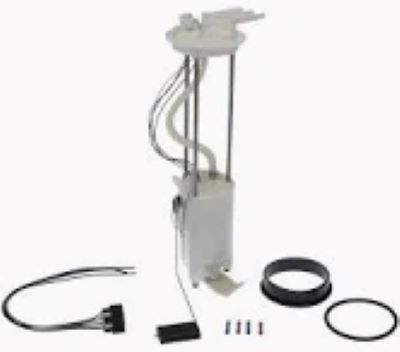Yeah, putting in a Fuel Pump will affect your fuel Pressure as is the case with most changes you undertake that have to do with how fast or when gas gets into an Engine. Fuel Pumps are made to give a certain PSI (pounds per square inch) of pressure; normally, they deliver about 40-60 psi for most cars. The engine air-fuel mixture is susceptible to changes outside of this range, with the result being poor performance. A new Fuel Pump may operate at a marginally higher pressure than the older one because its components are newer but if this results in an increased PSI to what is recommended by your vehicle, it will cause your engine to function too rich which robs you of more fuel and produce additional emissions.
A high performance Fuel Pump will also influence pressure, as these pumps usually provide more output, about 20-30% greater standard models. Aftermarket options like these are popular choices for drivers with a turbo or supercharger (an auxilliary device used to increase horsepower) add-on, as both require additional fuel. But this extra pressure can tax fuel injectors if simply attached to an unmodified engine and, eventually, cause them harm requiring costly repairs. One of the studies from auto industry suggests that not having properly matched Fuel Pumps can degrade injector life by as much as 40% so it is very important to use a fuel pump which meets requirements compatible with vehicle's fuel system.
Improper installation methods also make an impact on changes in fuel pressure. In addition, the pressure can vary in delivery if connections to fuel lines isn't securely attached or the original Pressure Regulator is left on post installation. Installing the wrong fuel injector can decrease fuel pressure consistency by 15% (in some cases) which often leads to rough idle or stalls. Therefore professional installation is recommended for this system, especially to drivers that are virgins over the Fuel Pump system because with precarious fittings and incorrect adjustments will lead fuel pressure loss.

As we mentioned above, the health status of your fuel filter is crucial to pressure stability. According to maintenance pros, a clogged filter can cause the Fuel Pump to work harder and decrease pressure delivery by as much 20%. So even though the system as a whole is problematic, replacing the filter along with everything else means more even pressure and therefore better engine performance -- which provides you with improved fuel economy. Just so you really take time to browse it: After every 30,000 miles a filter would have been replaced, and the replacement of link could guarantee your fuel flow is clean and operating at a normal pressure.
In turn, fuel line diameter and pump flow rate directly influence the level of fuel pressure. A Fuel Pump has a flow rate (in Liters Per Hour or LPH) which determines how much gasoline is being supplied to the engine. If the fuel lines are narrow and present high resistance to flow, a 250 LPH-rated pump may develop more pressure than it was designed for. If a vehicle has been modified with an aftermarket performance install, compatibility between Fuel Pump and fuel line specs is paramount to avoid any headaches.
These instances demonstrate how a Fuel Pump replacement can directly affect fuel pressure, as well as why compatibility, correct installation and maintenance are crucial. Browse more atwww.fuelpump.bizfor information, and chart the hassles of selecting & keeping a Fuel Pump; this site is geared towards all those who wish to improveperformanceby havingsomefirst choice info onhow go aboutdecidingupon high quality solutions.
